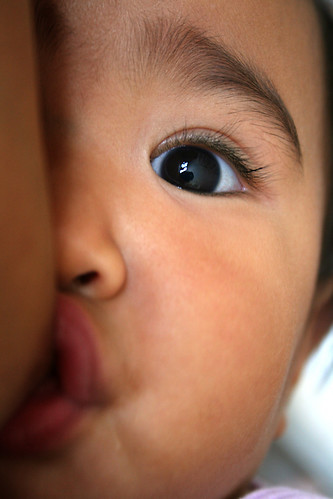It seems ad executives are always dreaming up new ways to sell the same old thing; trying to capture a larger part of the market share. Diapers are big business, and it seems once parents have found a brand that works for them, they are pretty loyal to that brand, which can make it tough to convince them to try something new. I understand ad executives have got a job to do, and I don’t argue with their right to do it. A common way to sell consumers on something is to use humor, and to try to show them how buying a certain product or service will solve a problem they are having. I understand the approach, but don’t appreciate it when babies are perceived as the “problem,” and the humor comes at their expense.
Huggies brand (Kimberly Clark) diapers is at it again. They are launching a new ad campaign today to sell “Little Movers” Slip On Diapers-essentially a more absorbent “pull up” diaper, with Velcro tabs along the sides. These “new” diapers are intended to make it easier for parents to change wiggly, or active babies. It’s not the product I have a problem with, it’s the way babies are are referred to in the ad that I take exception to. The terms used to describe the “problem” babies? “Rolling Pins,” ” Acrobutts,” “Streakers,” and “Booty Scoochers.” The ad slogan? “Catch. Slip On. Release.” Chris Turner, a creative director at Ogilvy, who worked on the campaign had this to say about the slogan:
“At times, these kids can be like little wild animals and you just want to catch the little guy, quickly do your change, and then do your release. It really is just a more clever way of communicating ‘as easy as 1-2-3.’ ”
Really, Mr. Turner??? Little wild animals??? Simply a clever way of communicating ‘as easy as 1-2-3.’ ??? I pity your child. I’d like to suggest to you that human babies are not little wild animals, nor are they objects, and they don’t deserve to be made the “butt” of jokes by “clever” ad executives such as yourself . Further, diapering a baby should have nothing in common with fishing at all, as implied by the ‘Catch and Release’ campaign tag line.
Let me suggest that the “help” parents might need transforming difficult diaper changing times into more enjoyable experiences for both adult and baby, doesn’t come from the particular diaper they buy or use, but from the attitude and sensitivity they bring to the task at hand.
Magda Gerber had this to say about diapering:
How many times do you think a baby gets diapered? Six or seven thousand times. Why don’t we do it nicely? Why don’t we make it a learning experience? Why don’t we want a baby to enjoy being diapered? Diapering is very important. Diapering is sometimes viewed as an unpleasant chore… a time separate from play and learning. But in the process of diapering we should remember that we are not only doing the cleaning, we are intimately together with the child. We are all affected, negatively or positively, by cumulative experiences in our lives. One of the first such cumulative experiences is diapering, involving much of the child’s and parent’s time and energy during those first, most impressionable two to three years of the child’s life. While being diapered, the baby is close to the parent and can see her face, feel her touch, hear her voice, observe her gestures, and learn to anticipate and know her.
In How to Love a Diaper Change, Janet Lansbury gives tips for turning a diaper change into an enjoyable, connected time for baby and parent. I don’t know about you, but I think if I was a baby I’d appreciate being changed by someone who approached me with some sensitivity and respect, and saw and treated me as a person, instead of an object. I might be more able and willing to co-operate if I was included in the process, instead of having something done to me. I think babies pick up on, and respond to our attitudes and approach to them, and if we act like we are in a rush to get through an unpleasant chore, they may respond in kind.
Won’t you join me in defending and speaking up on behalf of babies who can’t speak for themselves? What are your thoughts on Huggies newest ad campaign, and Magda Gerber’s ideas about diapering babies with respect?



